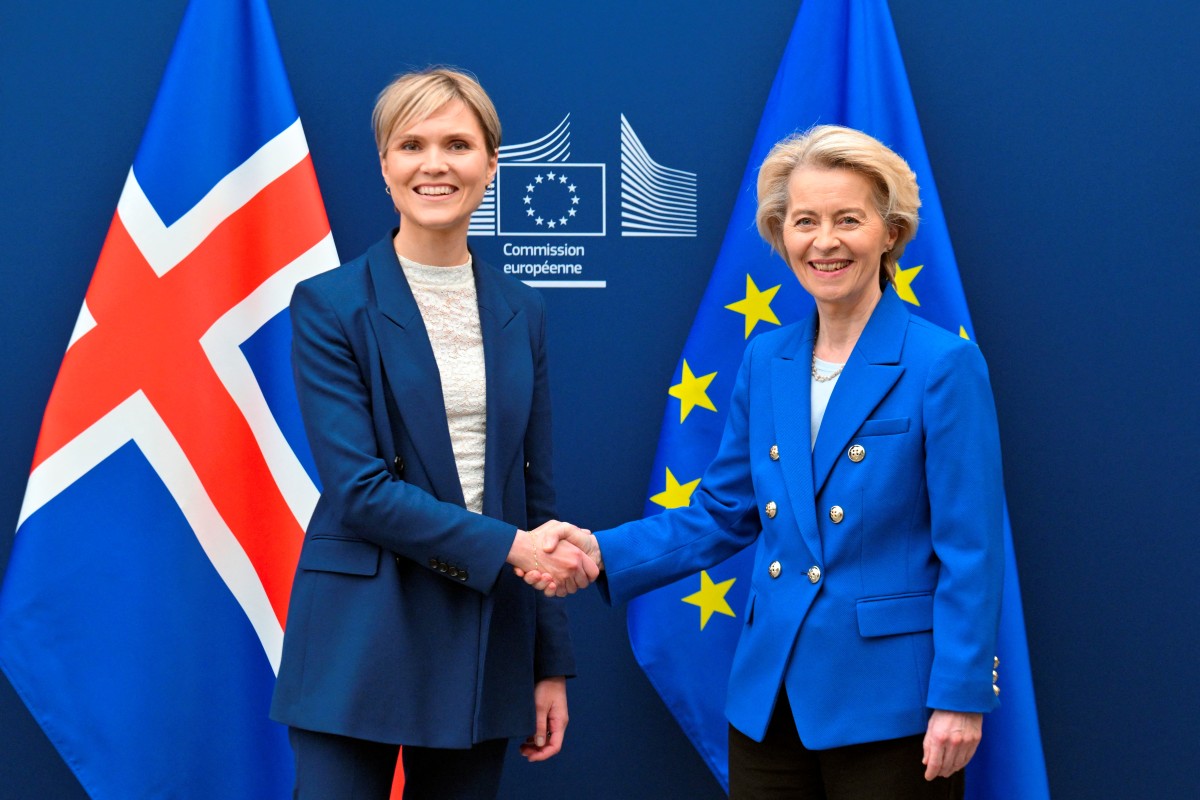Iceland’s foreign minister, Þorgerður Katrín Gunnarsdóttir, says there is enough public support to restart talks about joining the EU. Talks were paused in 2013, but the current government plans a new EU accession referendum by 2027.
But even before that step, the country is drawing closer to the European bloc.
At a joint press conference at Keflavik airport, Ursula von der Leyen announced the start of talks on a new security and defence agreement between the EU and Iceland. She emphasized that the deal would be independent of Iceland’s NATO ties and U.S. defence agreements, forming a “third pillar” of the country’s security.
Under the deal, Iceland would gain access to the EU’s €150 billion-per-year SAFE program for defence investment, already joined by eight countries, including Norway, the UK, and Canada.
Icelandic media report that negotiations could begin within weeks, with a final agreement possible by year’s end.
Prime Minister Kristrún Frostadóttir also confirmed that a full review of Iceland’s EU trade relations—first hinted at in December 2023—will soon begin.
Iceland is already part of the EU’s Schengen area and the European Economic Area. While 58% of Icelanders support a vote on restarting talks, only 45% support full EU membership, according to a poll earlier this year.
Amid rising tensions around Greenland and external pressure, including from Donald Trump, Iceland’s government has emphasized that any decision to join the EU should come from public choice—not fear.
